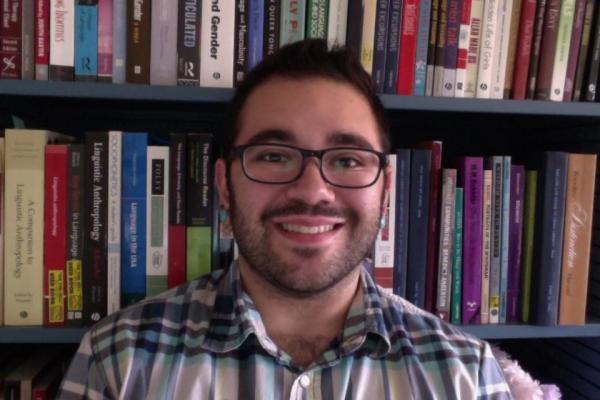
Dr. Lal Zimman is an Assistant Professor of Linguistics at University of California Santa Barbara. He is a sociocultural linguist who focuses on the linguistic practices of transgender and LGBQ speakers through a combination of ethnographic, discourse analytic, and sociophonetic methods.
Public Lecture: "From flesh to self: On the transgender nexus of language, embodiment, and identity"
October 26 |11am-12:30pm | 311 Denny Hall
Abstract: Bodies are not inherently meaningful, but imbued with meaning through social practice. This talk highlights the discursive processes through which this attribution of meaning takes place by analyzing the complex connection between language, gender, and embodiment. Rather than treating “discourse” as an abstract force, the analysis presented here grounds theories of embodiment in the everyday language that transform human flesh into embodied selves. By examining everyday language use, the talk highlights concrete linguistic strategies and their potential to complicate dominant medicoscientific discourses about biological sex.
The analytic focus presented in this talk is the genital terminology used by transgender people and in reference to transgender bodies. I examine a corpus of data from an online community for trans men and other transmasculine individuals on a popular social network platform from approximately 2004-2010. The talk about trans bodies found in this community represents an emerging discourse of linguistic agency over the body that has shifted over time in parallel with changes in trans discourses about embodied self-identification. I contextualize these practices as part of a larger linguistic logic that prizes individual self-identification over externally-imposed gender categories.
This logic, which has great liberatory potential and has been critical to the hard-fought advances of trans activists, in some ways clashes with theories of identity developed within sociocultural linguistics. In particular, the emphasis on individual agency reflects a neoliberal perspective on subjectivity that erases the collaborative aspects of identity construction. Here I turn to examples of non-trans speakers’ constructions of trans embodiment in sexualized contexts such as Craigslist as an example of the co-construction of identity as well as the highly variable responses elicited by trans people’s self-identifications. Drawing on the tactics of intersubjectivity (Bucholtz & Hall 2003, 2004) as a framework, I point to areas of potential dialog between trans theorists and sociocultural linguists. In all, this talk highlights the importance of examining everyday language usage in the our theorizations of the embodied self.
Faculty and Graduate Seminar will follow | 12:30-2pm | 311 Denney Hall
